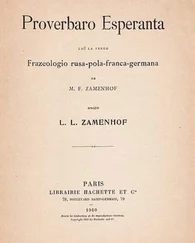She must have drifted off to sleep again because she woke to the sound of her phone. It was Nina. She didn’t say hello or introduce herself. ‘I don’t understand,’ she shouted in Greek. ‘I don’t understand what you are doing.’ Her voice trembled. Daphne replied in English, ‘Can I try to explain?’ However, Nina was not ready to listen and continued in her mother tongue. ‘I hope you are happy to destroy a family, destroy a man. This will kill him.’ Trust a Greek to exaggerate, thought Daphne.
‘I suppose you know he’s very ill?’
‘No.’ This was unexpected. ‘No, what’s wrong with him?’
‘The unspeakable sickness.’ Nina used the outmoded term and waited briefly for a response, but what could Daphne possibly answer? ‘Yes, cancer. So you say you were abused as a child. But it seems to me, Daphnoula, that you weren’t a child. You were a teenager – a young woman. You were chasing Ralph, testing him. Don’t think I didn’t notice your pathetic little games, even if I chose to ignore them. So what is this now? Perhaps it’s all hormones again and you are going through the climacteric? Surely you can see it’s beside the point – who slept with whom back in the 1970s.’ Daphne had only ever seen Nina calm. Ralph gave the impression she was a sexless mother figure to him as well as their children, an introverted painter of obscure abstracts – someone who wouldn’t mind about his naughty predilections for tree houses and sleeper trains. This knife-wielding ferocity was a new side to the woman who must have always detested her and whose suspicions were now vindicated.
‘I never believed you were very intelligent, Daphne. I know your life has been a mess. But I thought you had a good heart. Now I can’t believe this hatred. What do you want?’
‘What I want—’ she began.
‘Daphne, listen,’ Nina butted in. ‘Ralph and I have grandchildren. We are old. He is sick. We don’t know how long he’ll last. What will you achieve by this?’ The rage was dying down into exhaustion. ‘Tell me that.’ And finally, she stopped, waiting for a reply that could never be satisfactory.
At another point in her life, Daphne might have backed down. ‘I’m sorry if your husband’s behaviour is hard for you. But that’s not my problem. That’s something he should have thought of. I’m sorry, but I have to go now. Goodbye.’ She hung up with an internal thwack of adrenaline that was like a shot of neat alcohol. As if in confirmation of Nina’s jibes about her hormonal state, a hot flush took hold with shocking intensity. Her face burned with a furnace-fired blush and her hairs prickled like spines. She felt as though she might suffocate.
—
She began to prepare for the evening, and made a brief foray to buy flowers, olives and candles. She struggled to find the will to tidy up. Ellie had always managed to play it both ways over matters of domestic hygiene. ‘Only as much as the mother-in-law will see,’ she used to say in Greek when straightening up a room for guests. Definitely a believer in dust-under-the-rug as a solution, her mother would occasionally plunge into manic ‘spring cleaning’ – more warfare than housework.
Unpredictability was the only reliable rule with Ellie; her belief in Freedom (her name, after all) was the perfect get-out clause. Out of nowhere, the force that generations of her family’s women had brought to this role would erupt with volcanic impulsiveness and she would transform into a version of her female predecessors, engulfing her offspring with maternal concern. With her worn dungarees and free-flowing hair, she didn’t look like most Mediterranean mamas, but she could turn her hand to it if she desired. For a few days, there would be mad mountains of food, loud concerns expressed about children catching cold, and dedicated bursts of checking schoolwork. So on any particular day, Daphne could never predict whether her mother would be an absent, ideology-driven protestor or a smothering mother. What did she imagine went on when she was out or away? wondered Daphne. When I was little, I never knew where she was or what to expect and then she’d swoop in like an avenging angel.
In the afternoon she worked on Ed’s present. There was still about a week before her father’s birthday and she’d almost finished the large cushion sewn with appliqué pictures for each decade of his life. First, a child in a leg brace, standing under a Kentish apple tree – a German war plane flying overhead. Then a lanky teenager by a ruined Mediterranean temple, to illustrate his youthful travels. His student years had him surrounded by flying books, while as paterfamilias she depicted him in colourful robes with wife and children. In his forties he was lying on an analyst’s couch – for several years he had retreated down the complex coils of his psyche, at a time when Ellie was forging outwards and embracing political activism. Inevitably, his fifties was France and Margaret – she had them at a café table drinking pastis. The last two decades were tricky, but she showed him receiving an honorary degree from his alma mater, King’s College London, and then writing in his Dordogne garden.
She’d constructed the cushion with an uncharacteristically gentle sweetness, avoiding irony or the dark rawness, with explosions of kitsch, that often entered her work. Standing back from the cushion and examining it, she wondered how Ed had failed to see what was happening with Ralph. Why didn’t he save her? What did her parents imagine was going on when their friend went to their daughter’s bedroom or whisked her off in his car? It was hard to conceive that she would ever let a man visit Libby or take her on picnics and theatre trips. Had Ellie and Ed ever discussed it? she wondered. Ever worried about her?
When Libby got back from school she set to work with the Hoover.
‘God you’re a marvel.’ Daphne gazed in admiration as tumbleweed fluff balls were sucked up, rugs lost their crust of hairs and grit and the flat took on a new sparkle. ‘You’ve saved us.’ Libby had demonstrated her precocious affinity with order and cleanliness from around the time she said her first words, preferring games that involved folding cloths or sweeping to those with dolls or building blocks. Sometimes she would take out all of Daphne’s tangled clothes from their drawers and, just for fun, place them all back in perfectly arranged sequence of colour or type. While her daughter’s neatness was undeniably useful, there were times when it was almost scary.
She changed into a velvet dress – still ruby red even if it was so old as to be balding – lit candles and poured a glass of wine from an open bottle in the fridge. Gulping some down in a medicinal manner, she hoped to get rid of the knot of worry taking hold. This was not an ideal time for a reunion with her father.
The buzzer always made her jump, even when she was expecting it. ‘Hello. Welcome,’ she shouted into the intercom, observing her father’s looming nose as he stared into the camera. ‘Fourth floor,’ she added before remembering that, while it was his first visit to their new home, he knew the place from his sister’s day. ‘They’ve arrived,’ she called to Libby, feeling the tension spike.
They watched Ed and Margaret emerge from the lift at the other end of the corridor, waving and calling, encumbered by bags and clanking bottles. Ed was using a stick and moved slowly, so Daphne walked towards them, followed by Libby.
‘Look at my marvellous girls!’ He dumped his bags and stood, arms spread in theatrical wonder, then turning to Margaret for affirmation. She smiled dutifully.
‘Daphne, darling.’ He was bonier than before, the sharp angles more evident as she put her arms around him and breathed in a scent she didn’t recognise and assumed was French. Still, he looked well. His formerly pale, English skin had a healthy suntan and, with his silk scarf and maroon homburg hat, he was still acting the dandy at the end of his eighth decade.
Читать дальше












